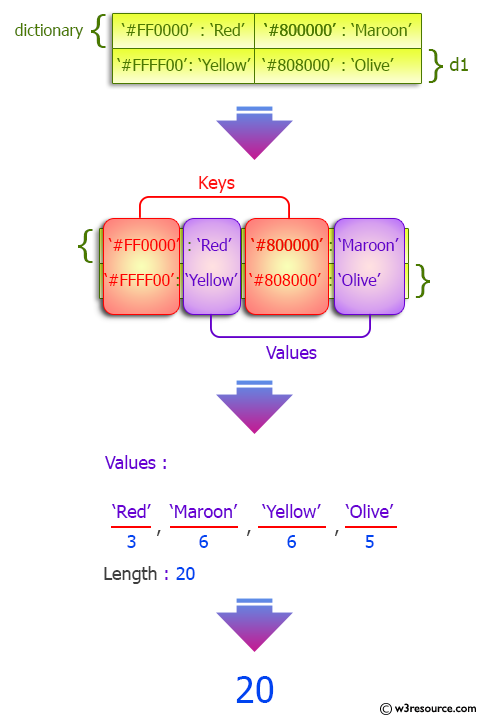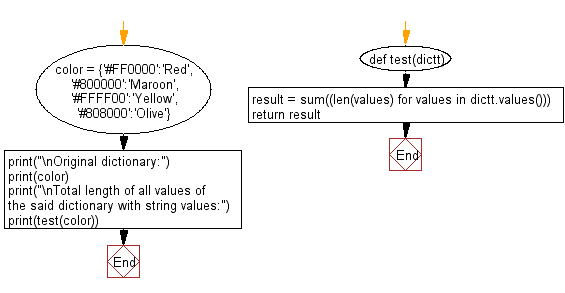Python: Total length of all values of a given dictionary with string values
65. Total Length of All Values in Dictionary (String Values)
Write a Python program to get the total length of all values in a given dictionary with string values.
Visual Presentation:

Sample Solution:
Python Code:
# Define a function 'test' that takes a dictionary 'dictt' as an argument.
def test(dictt):
# Use a generator expression to calculate the sum of lengths of all values in the input dictionary.
result = sum((len(values) for values in dictt.values()))
return result
# Create a dictionary 'color' with color codes as keys and color names as values.
color = {'#FF0000':'Red', '#800000':'Maroon', '#FFFF00':'Yellow', '#808000':'Olive'}
# Print a message indicating the start of the code section and display the original dictionary.
print("\nOriginal dictionary:")
print(color)
# Print a message indicating the purpose and demonstrate the 'test' function's usage
# to calculate the total length of all string values in the dictionary.
print("\nTotal length of all values of the said dictionary with string values:")
print(test(color))
Sample Output:
Original dictionary:
{'#FF0000': 'Red', '#800000': 'Maroon', '#FFFF00': 'Yellow', '#808000': 'Olive'}
Total length of all values of the said dictionary with string values:
20
Flowchart:

For more Practice: Solve these Related Problems:
- Write a Python program to compute the sum of the lengths of all string values in a dictionary using a for-loop.
- Write a Python program to use dictionary comprehension to create a list of lengths and then sum them.
- Write a Python program to iterate over dictionary values and add up the character counts for each value.
- Write a Python function that takes a dictionary with string values and returns the total length of all values.
Go to:
Previous: Write a Python program to create a key-value list pairings in a given dictionary.
Next: Write a Python program to check if a specific Key and a value exist in a dictionary.
Python Code Editor:
What is the difficulty level of this exercise?
Test your Programming skills with w3resource's quiz.
